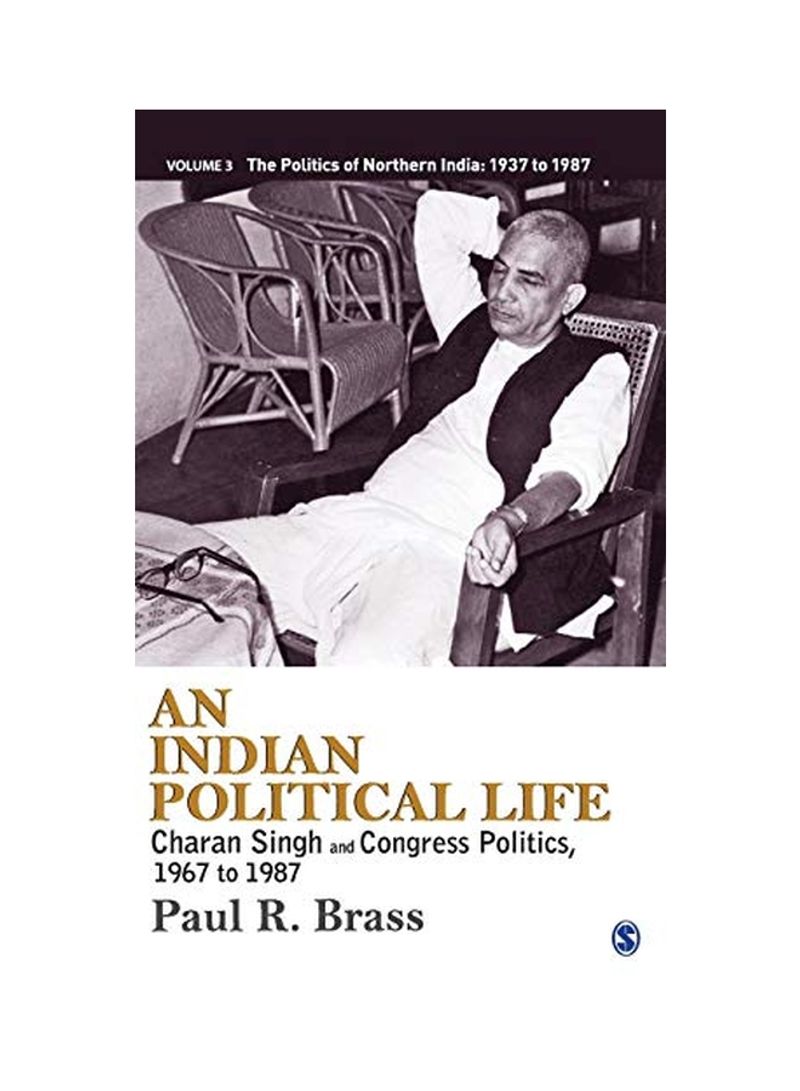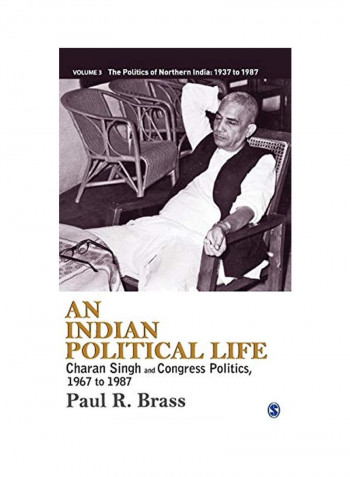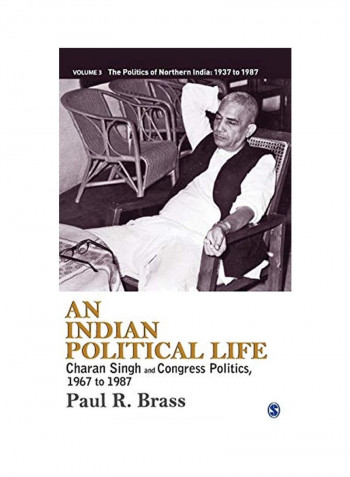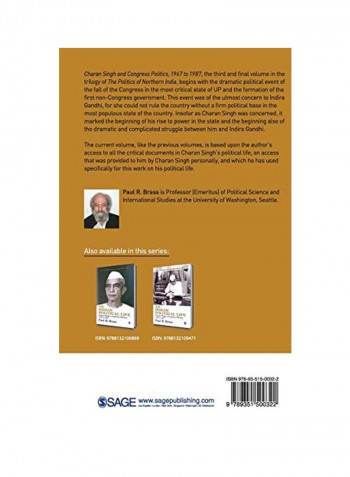Sage Pubns
Shipped from India
An Indian Political Life Paperback
Recommend
Sort by
Rating
Date
An Indian Political Life Paperback
Description:
If you find an error in the description, please let us know!
Write a message
Send Report
If you find an error in the description, please let us know!
Specifications
Country of Origin
India
Author 1
Paul R Brass
Book Description
Charan Singh and Congress Politics, 1967 to 1987, the third and final volume in the trilogy of The Politics of Northern India, begins with the dramatic political event of the fall of the Congress in the most critical state of UP and the formation of the first non-Congress government. This event was of the utmost concern to Indira Gandhi, for she could not rule the country without a firm political base in the most populous state of the country. Insofar as Charan Singh was concerned, it marked the beginning of his rise to power in the state and the beginning also of the dramatic and complicated struggle between him and Indira Gandhi.The current volume, like the previous volumes, is based upon the author's access to all the critical documents in Charan Singh's political life, an access that was provided to him by Charan Singh personally and which he has used specifically for this work on his political life.Table of Contents:Preface and Series NoteChronology of Principal Events in the Life of Charan SinghI: Last Days In Lucknow, 1967-1975The fall of the Congress and Formation of the first Non-Congress GovernmentAlignments and RealignmentsMisalliances: Charan Singh and Indira Gandhi?Nationalization? of the UP Sugar IndustryIndira Gandhi, Kamalapati Tripathi, Charan Singh and ?New Congress? PoliticsLand CeilingsHiatusII: Emergency And Its TerminationDeclaration of the Emergency and Its JustificationThe Gradual Restoration of Normality and Termination of the EmergencyThe Fall and Rise of Indira GandhiArrest And Release DramaIII: Ambitions Fulfilled And Thwarted, 1979- 87Split Between Morarji Desai And Charan SinghDefeat, Outrage and DivisionCharan Singh?s LegacyAppendix A: Interview with Chaudhuri Charan Singh at the Suraj Khand Inspection House, Outside of Delhi, March 24, 1978 (Recall From Memory)APPENDIX B: Remarks of Narain Dutt Tiwari, Minister Of Finance, UP, Concerning Charan Singh. Part of a taped interview in his home, Lucknow, July 22 1973Appendix C: Paul R. Brass Transcribed Interview with Indira Gandhi, 26 March 1978BibliographyIndex
ISBN-10
9351500322
ISBN-13
9789351500322
Language
English
Publisher
Sage Publications India Pvt Ltd
Publication Date
1-Dec-14
Number of Pages
336
About the Author
Paul R Brass is Professor (Emeritus) of Political Science and International Studies at the University of Washington, Seattle. He has published numerous books and articles on comparative and South Asian politics, ethnic politics, and collective violence. His work has been based on extensive field research in India during numerous visits since 1961. He has been a University of Washington faculty member and Professor, Department of Political Science, and The Henry M. Jackson School of International Studies since 1965. He received his BA in 1958, Government, Harvard College; his MA in 1959, Political Science, University of Chicago; and his PhD in 1964, Political Science, University of Chicago. His teaching specializations include: comparative politics (South Asia), ethnicity and nationalism, as well as collective violence. Prof. Brass has received Fellowships at the Woodrow Wilson International Center for Scholars, Washington, DC, 1994-95; Faculty Research Fellowships, American Institute of Indian Studies: 1993, 1982- 83, 1973, 1966-76; John Simon Guggenheim Memorial Foundation Fellowship, 1972-73; Grants for Research on South Asia, American Council of Learned Societies and Social Science Research Council, 1966-67, 1973-74, 1977-78, 1982-83, amongst others. In 2008, Brass received the Andrew W. Mellon Foundation's Emeritus Fellowship. In 2012, Professor Brass was awarded a Fulbright-Nehru Senior Research Fellowship grant for the academic year 2012-13, which allowed him to carry out further research in India during his stay of nine months. During that period he was affiliated with the Centre for the Study of Developing societies, Delhi.




